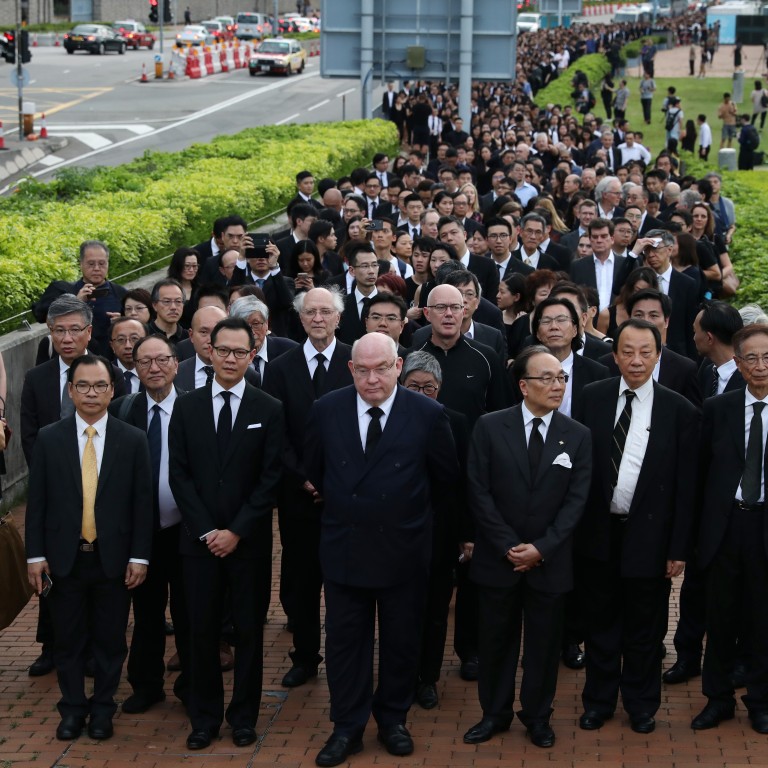Advertisement
Advertisement

Letters | As Hong Kong’s protests show no signs of abating, can the Bar Association do its bit to defuse the crisis?
- The Bar Association’s opinion that the extradition bill should be withdrawn is a purist ideal that is contributing to the continued stalemate
- Protesters’ demand for an amnesty for those arrested is legally dubious and should not be tacitly supported
Since the government announced the indefinite suspension of the extradition bill on June 15, protests in the city have not stopped but escalated in violence. Often those insisting on a full withdrawal of the bill cite the Hong Kong Bar Association’s opinion on the matter. Given the esteem in which the association is held, this opinion has legitimatised the protests in the city, which have increased in violence although public participation has dropped.
No doubt the Bar Association has its expert opinion on why a full withdrawal would be more appropriate than suspension. Yet, given the state of these protests, continuing to insist on a purist ideal will break our city. Since June 16, when we had the largest turnout at the demonstrations, participation has dropped precipitously. The Hong Kong government is now in an awkward position where acceding to the withdrawal of the bill would effectively promote riots whenever there is legal debate in the future.
I have faith that the Bar Association is not a proponent of such violent actions. Would it be more pragmatic to accept that the government will keep its word on the suspension of the bill? I am not a lawyer and therefore may not appreciate the subtle differences between the indefinite suspension and withdrawal of a bill. However, from my rudimentary understanding, by suspension, the government has the right to resume reading of the bill any time before July 2020. However, why can we not give the government the benefit of the doubt that it has no intention of doing so?
I understand that the government has to give 12 days’ notice to resume the second reading of the bill. Let us advocate a suspension of protests as well – and resume them within 12 days if the government does not keep its word.
There are dimensions to the protesters’ five demands that are legally dubious and I question why the Bar Association would tacitly allow itself to be associated with those – namely, unconditionally dismissing charges against people who allegedly occupied public thoroughfares or attacked the police, and ousting our chief executive due to her misjudgment on an unpopular bill.
On the former, our Department of Justice is responsible for reviewing charges and any allegations should go through this process of due diligence. I would have thought that, as a legal society, the Bar Association would want to uphold such a system. Meanwhile, demanding the chief executive’s resignation simply raises questions about how to elect the next one. These aspects of the five demands risk creating an anarchist state where there is no proper mechanism to vet rioters or to appoint our chief executive.
Had the protesters kept to peaceful rallies, I would not ask the Bar Association to reconsider its stance on withdrawal. But right now, this purist ideal is legitimising extremists to hold the city to ransom, even as popular opinion, based on protest participation, has actually accepted the government’s suspension. I have always looked up to the Hong Kong Bar Association and trust in its wisdom. I hope the association will reassess its statement, accounting for pragmatism, popular sentiment and the need to uphold our legal and judicial system.
B. Leung, Mid-Levels

Post
